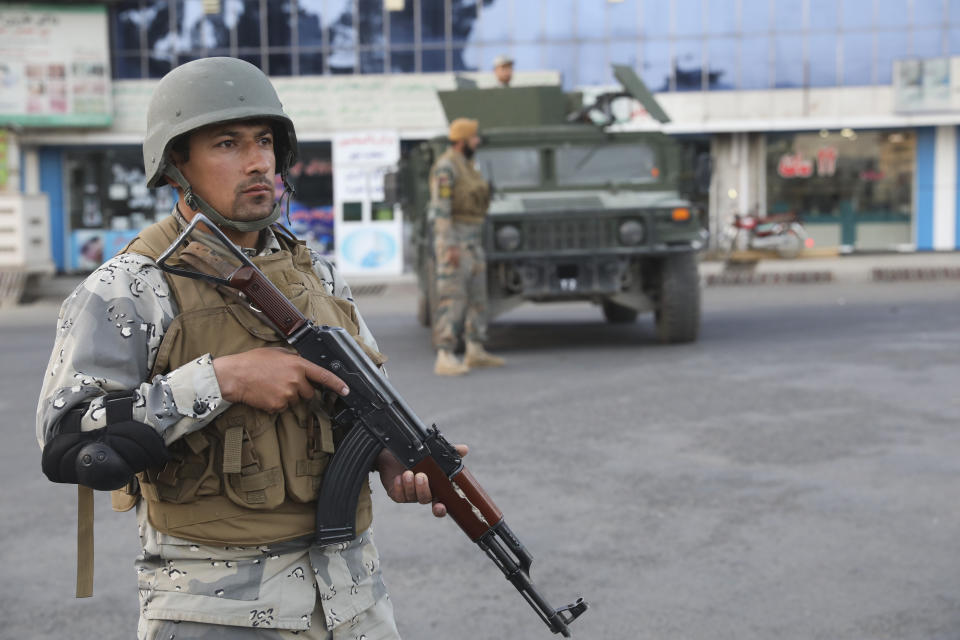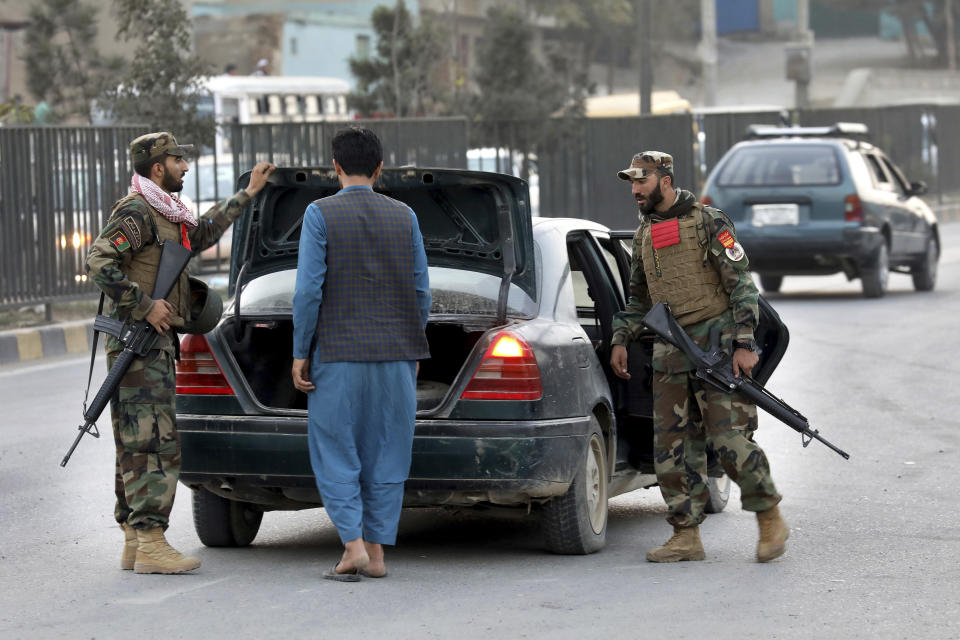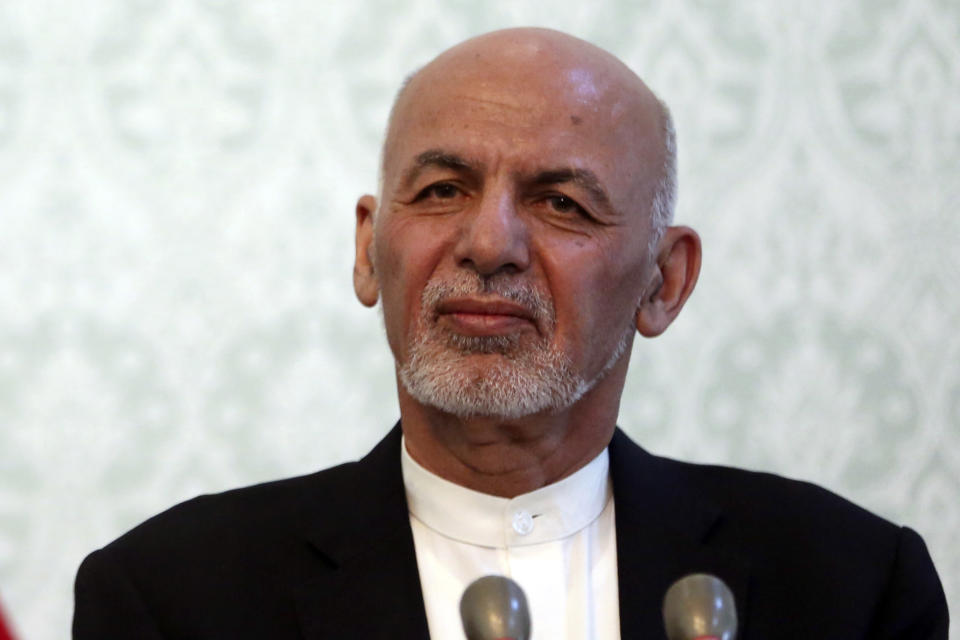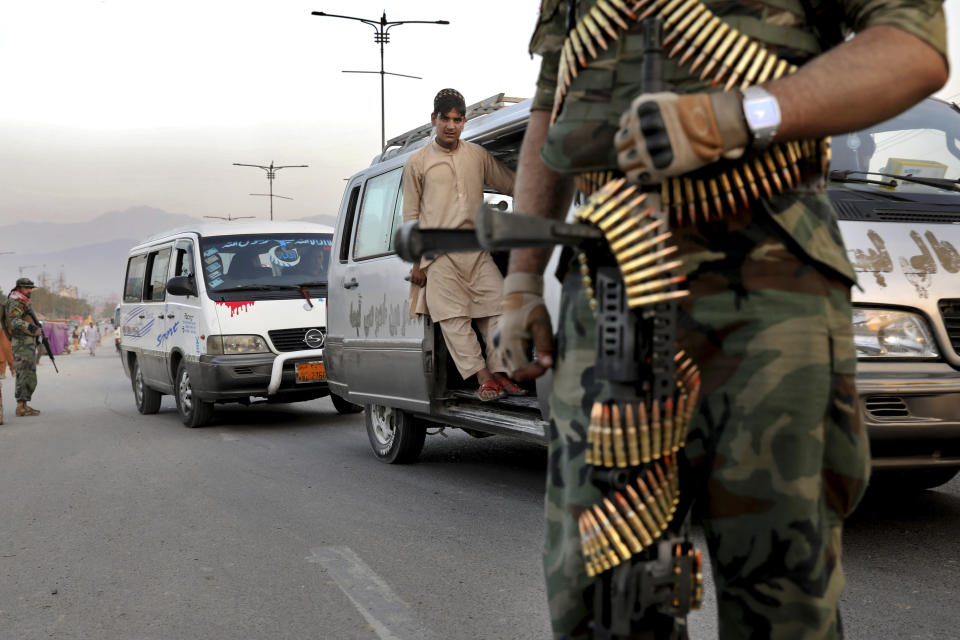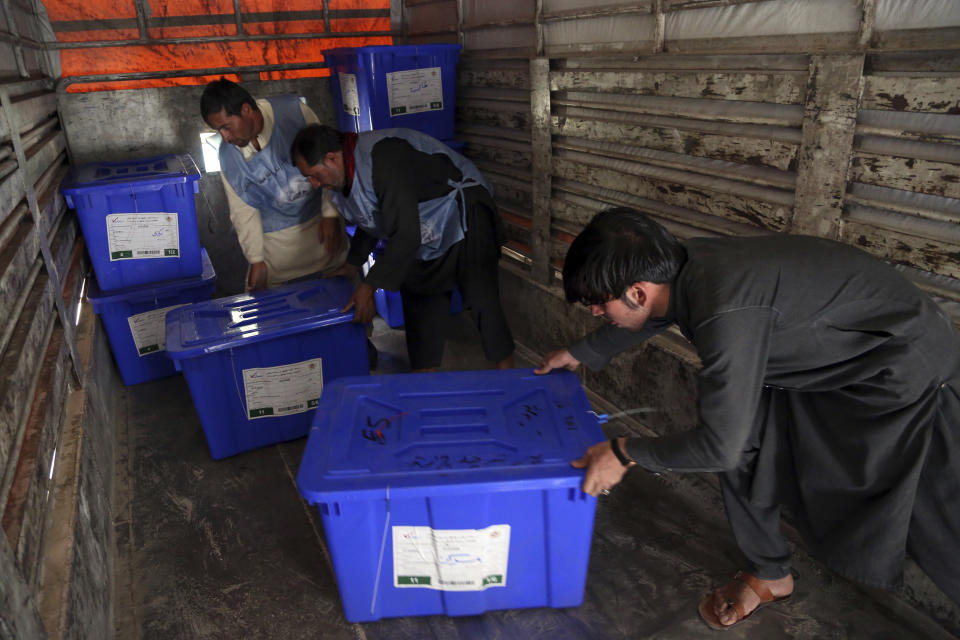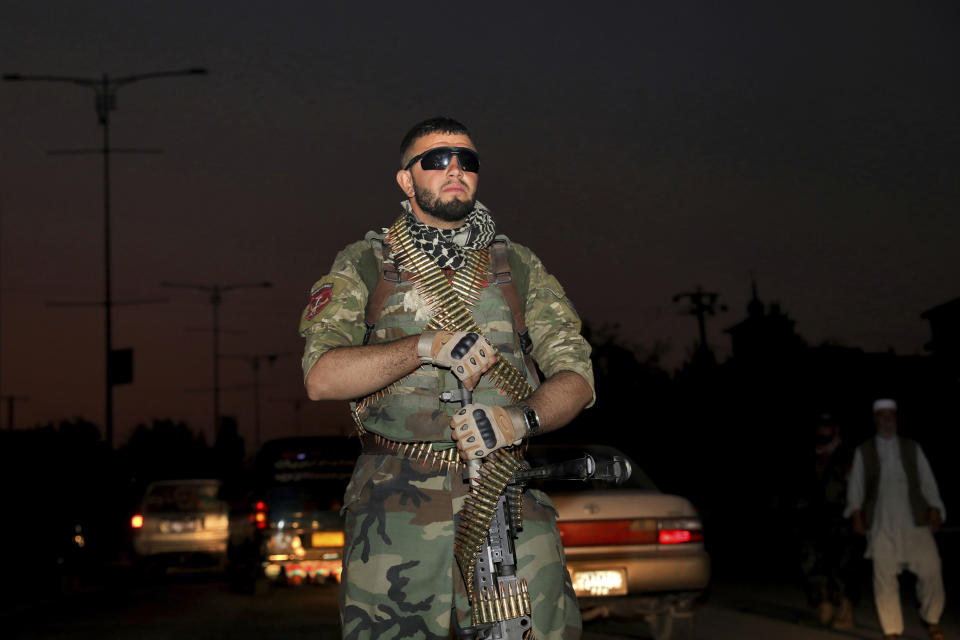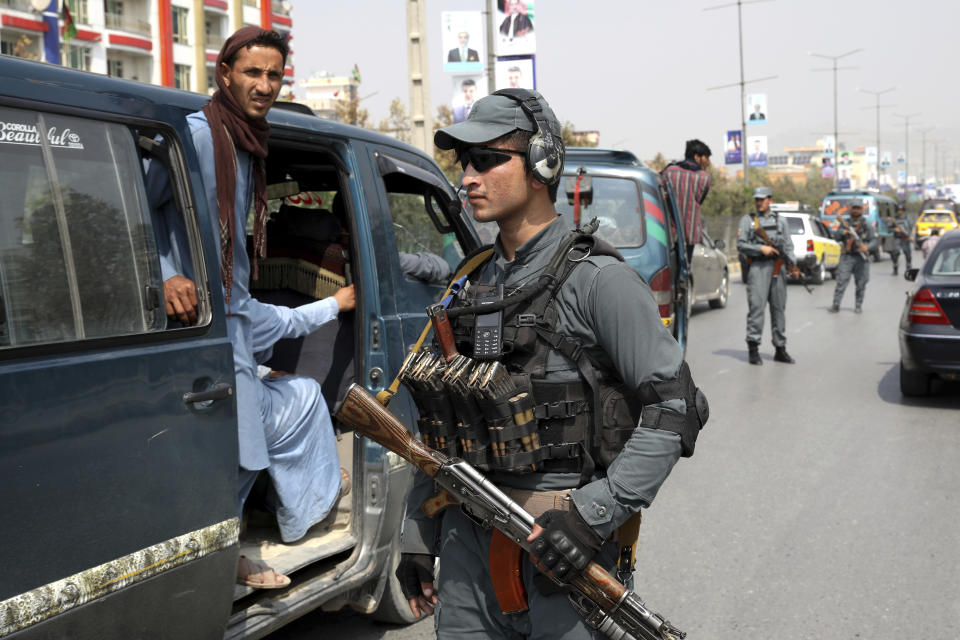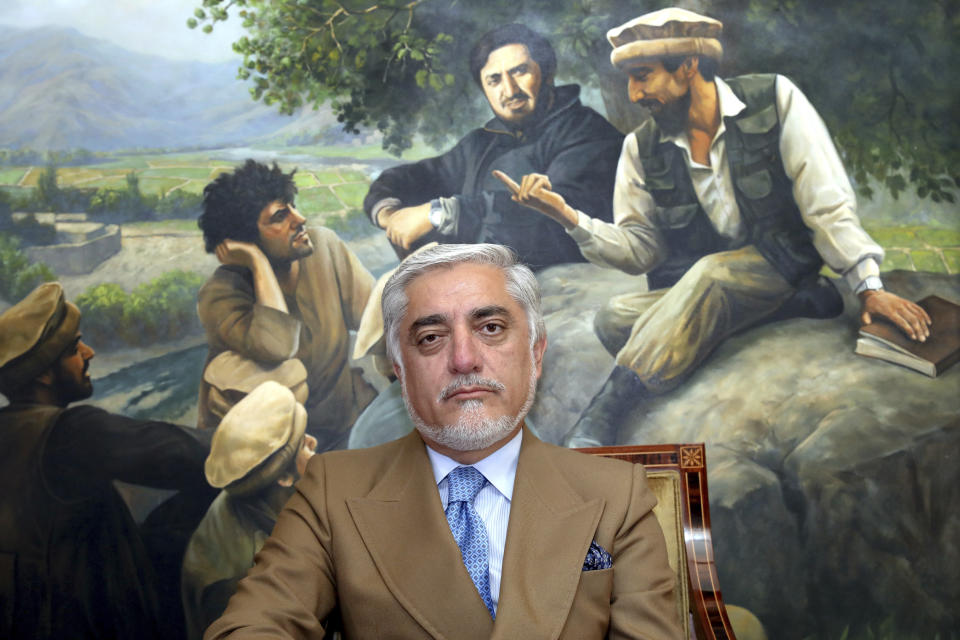The Latest: Afghan polls close amid complaints, violence
KABUL, Afghanistan (AP) — The Latest on Afghanistan's national elections (all times local):
5:05 p.m.
Polls have closed in Afghanistan's presidential election amid widespread complaints of irregularities and pockets of violence from Taliban insurgents, mostly in the south and north of the country.
Voters complained that voters' lists were incomplete or missing and biometric identification machines intended to reduce fraud were not working properly or people were not adequately trained on how to use them.
A deeply flawed election could drive the country into chaos. Preliminary results are not expected before Oct. 17 and final results not until Nov. 7. If no candidate gets 51 percent of the vote, a second round will be held between the two leading candidates
___
3:40 p.m.
Afghanistan's chief election official says polls will stay open for an extra hour until 5:30 p.m. local time.
Hawa Alim Nuristani, head of the Independent Election Commission, said Saturday that officials wanted people still waiting in line a chance "to cast their votes."
She said that the commission estimates roughly 4,500 polling centers are open across the country, despite concerns over security and disorganized balloting.
Threats of violence from Taliban insurgents have rattled Afghanistan as it holds presidential elections, weeks after the U.S.-led peace process collapsed.
___
12:30 p.m.
A provincial official in Afghanistan's north says insurgents firing mortars on the city of Kunduz are attempting to stop voting in national elections.
Ghulam Rabani Rabani, a council member for Kunduz province, says Saturday that Taliban also are attacking Afghan security forces in two locations outside the city, in running gun battles.
He confirms civilian casualties, but couldn't immediately provide a number as the telecommunication networks are disrupted or even at times completely downed.
Rabbani said the attacks are to "frighten people and force them to stay in their home and not participate in the election."
He added that voter turnout in Kunduz would likely be low with the threat of further violence so high.
___
11:25 a.m.
Pakistan has reversed its order to close its western border with Afghanistan after getting a request from the Afghan ministry of defense to re-open it to allow Afghans to return home to vote in Saturday's presidential polls.
Pakistan's foreign ministry said in a statement that the border would be re-opened despite security concerns, so that Afghans can "exercise their right to vote during the presidential election."
Pakistan had previously announced it would close its borders Saturday and Sunday in an effort to prevent cross border incursions during presidential elections in Afghanistan.
Afghanistan routinely accuses Pakistan of harboring Taliban insurgents on its side of the border, a charge Pakistan denies.
___
10:15 a.m.
A hospital in the southern city of Kandahar says that it is treating at least 15 wounded after a bomb attack on a local mosque where a polling station is located.
The doctor with the Southern Kandahar Hospital said the wounded included one police, several election officials, and Afghans who came to cast their ballots in the national elections on Saturday.
The doctor spoke on condition of anonymity because he was not authorized to speak with the media.
He added that three of the wounded are in critical condition.
Threats of violence from Taliban insurgents have rattled Afghanistan as it holds presidential elections, weeks after the U.S.-led peace process collapsed.
___
Associated Press writer Rahim Faiez reported from Kabul, Afghanistan.
___
7:05 a.m.
Afghans head to the polls to elect a new president amid high security as the Taliban vow to disrupt elections, warning citizens to stay home or risk being hurt.
The leading contenders are incumbent President Ashraf Ghani and his partner in the 5-year-old unity government, Abdullah Abdullah, who already alleges power abuse by his opponent.
Fear and frustration at the relentless corruption that has characterized successive governments rank high among Afghan concerns.
Tens of thousands of police, intelligence officials and Afghan National Army personnel have been deployed throughout the country to protect nearly 5,000 election centers.
In Kabul, traffic is light with police and army scattered throughout the city, stopping cars and looking for anything out of the ordinary.
The Taliban say they will take particular aim at Afghanistan's cities.
